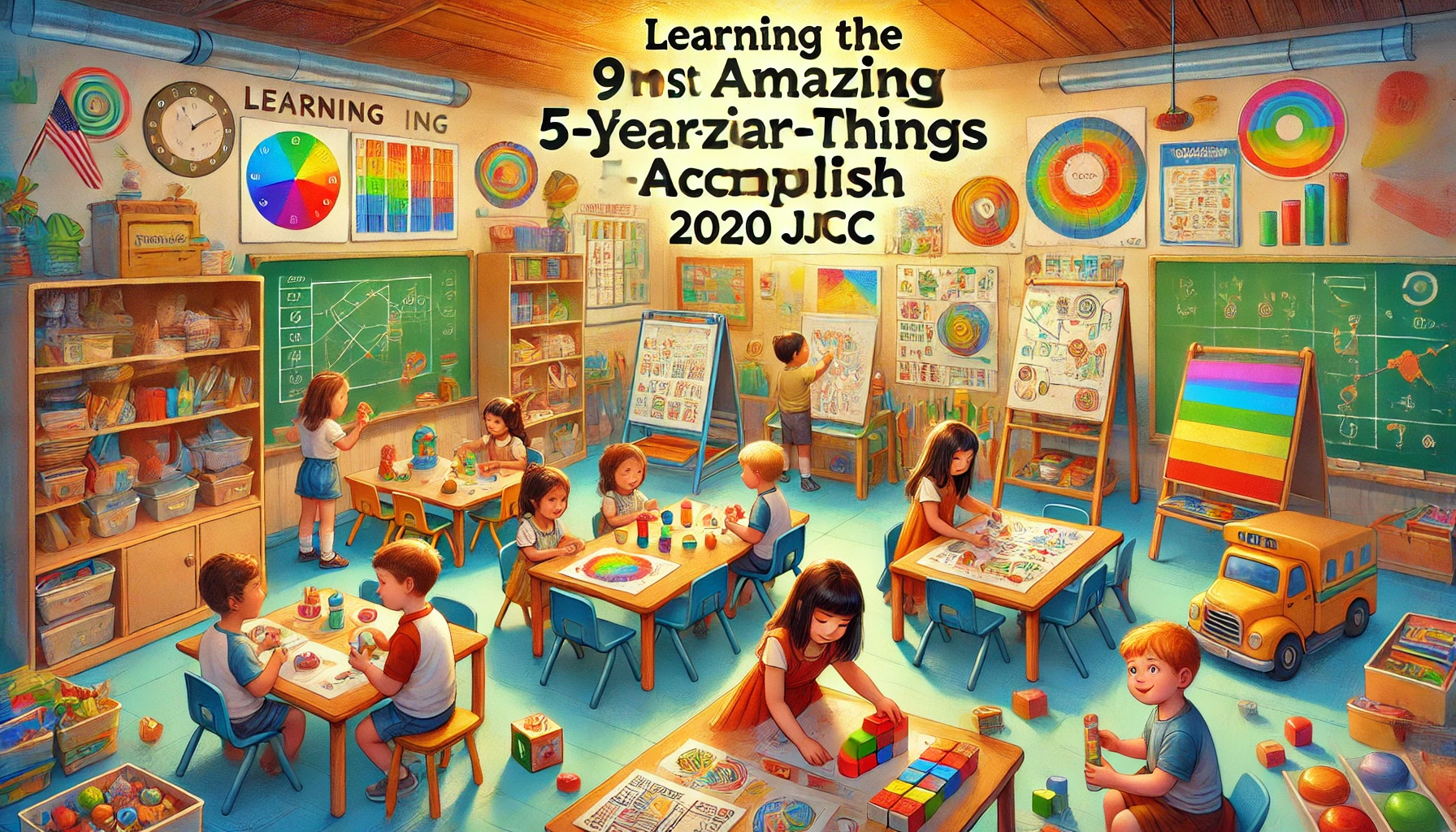As parents, teachers, or caregivers, witnessing the incredible development of a 5-year-old is nothing short of awe-inspiring. At this age, children achieve so much in terms of physical, social, and cognitive milestones. From their expanding vocabulary to their ability to express emotions, 5-year-olds are constantly learning and accomplishing things that set the foundation for their future. In this blog post, we’ll explore the 9 most amazing things 5-year-olds accomplish and how these achievements play a pivotal role in their growth. If you’re curious about what makes this stage so special, you’re in for a treat!
Introduction: Why Age 5 is So Special
Age 5 is often described as a magical time in child development. It’s a stage where children begin to bridge the gap between toddlerhood and more structured learning environments, like kindergarten. Their curiosity, creativity, and energy seem endless, and they can do things that may leave you speechless. This post will dive into the nine most amazing things a 5-year-old can accomplish, and trust me, it’s a journey filled with wonder and excitement.
1. Language Explosion: Full Sentences and Complex Ideas
By age 5, children are little chatterboxes, constantly asking “why” and offering explanations for the world around them. Their vocabulary has grown by leaps and bounds, and they can now speak in full sentences, express complex ideas, and hold conversations that truly reflect their thinking process. You’ll notice they start using more descriptive language, and their storytelling skills are blossoming. They can explain things like, “I had a dream last night about a talking tree!”—making every conversation with them an adventure.
2. Increased Independence
At this age, children are more independent and self-sufficient. Tasks like dressing themselves, brushing their teeth, and even making simple choices (like picking out their clothes or deciding what to eat) become part of their daily routine. This increased independence is a sign of their growing self-confidence and desire to explore the world around them without constantly relying on adults.
3. Early Reading Skills
By 5, many children begin recognizing letters, understanding sounds, and even reading basic words. They can spell their name, identify familiar words in books, and are eager to explore the world of reading. Whether they’re sounding out letters or pointing to words in their favorite storybook, this early exposure to literacy lays the groundwork for future learning.
4. Social Skills and Friendships
Social interactions become more complex at age 5. Children develop a better understanding of sharing, taking turns, and playing cooperatively with their peers. They start forming deeper friendships and can articulate their feelings more clearly. It’s a beautiful time to witness as they begin to grasp the concept of empathy, understanding how others feel, and adjusting their behavior accordingly.
5. Improved Fine and Gross Motor Skills
5-year-olds have much better control over their bodies than they did just a year or two ago. Whether it’s running, jumping, or climbing, they seem to be in perpetual motion. Their fine motor skills, which involve smaller movements like holding a pencil or using scissors, also see significant improvement. You’ll find that many 5-year-olds enjoy activities like drawing, coloring, and building with blocks, where they can practice these newly developed skills.
6. Curiosity and Problem-Solving Abilities
Children at this age are curious about everything. They want to know how things work, why certain things happen, and what the purpose of different objects or events is. This curiosity drives them to explore, experiment, and ask endless questions. Their problem-solving abilities also improve, and they are better at figuring out how to accomplish tasks on their own, whether it’s completing a puzzle or solving a basic math problem.
7. Understanding of Rules and Boundaries
As 5-year-olds enter more structured environments like school, they begin to understand the importance of rules and boundaries. While they may not always like following them, they comprehend why rules exist and are better at adhering to them. This understanding helps them thrive in group settings and prepares them for future social interactions, where respecting boundaries is crucial.
8. Creative Play and Imagination
The imagination of a 5-year-old knows no limits. They create entire worlds in their playtime, often blending reality with fantasy. Whether they’re pretending to be superheroes, doctors, or explorers, their creativity shines through. Imaginative play helps them develop problem-solving skills, improve their language, and explore emotions. It’s one of the reasons why play is considered such an essential part of early childhood development.
9. Emotional Awareness and Expression
By the age of 5, children become more aware of their emotions and begin expressing them in healthier ways. They can tell you when they’re sad, mad, happy, or frustrated, and they might even start to understand why they feel that way. They learn to navigate these emotions through words rather than just actions (like crying or tantrums), which is a significant milestone in emotional development.
Conclusion: The Magic of Being 5
The journey of a 5-year-old is filled with discoveries, both big and small. From developing language skills to forging friendships and understanding rules, this stage of life is truly magical. These achievements may seem simple to adults, but for a child, each new skill opens up a world of possibilities. If you’re fortunate enough to be part of a 5-year-old’s life, cherish these moments—they grow up fast!
FAQs
1. What should I expect from my 5-year-old in terms of learning and development?
By age 5, you can expect your child to be more independent, curious, and emotionally aware. They’ll have improved language skills, fine and gross motor abilities, and a better understanding of social rules.
2. How can I encourage my 5-year-old’s development?
Encourage your child’s curiosity by answering their questions, providing age-appropriate books, and engaging in creative play. Allow them to explore their independence through tasks like dressing themselves or choosing activities.
3. Is it normal for 5-year-olds to start reading?
Many 5-year-olds begin recognizing letters and simple words, but the rate of reading development can vary. Some children start reading early, while others may take more time, which is perfectly normal.
4. How can I support my child’s emotional development?
Helping your child identify and express their emotions is key. Encourage them to talk about their feelings and model healthy emotional expression. Praise them for using words to describe their emotions instead of acting out.
5. What social skills should a 5-year-old have?
At this age, children begin forming deeper friendships and understand concepts like sharing, taking turns, and empathy. They can also follow basic rules and participate in group activities.
By understanding and nurturing these incredible milestones, you’re setting your child up for a lifetime of learning and growth!








